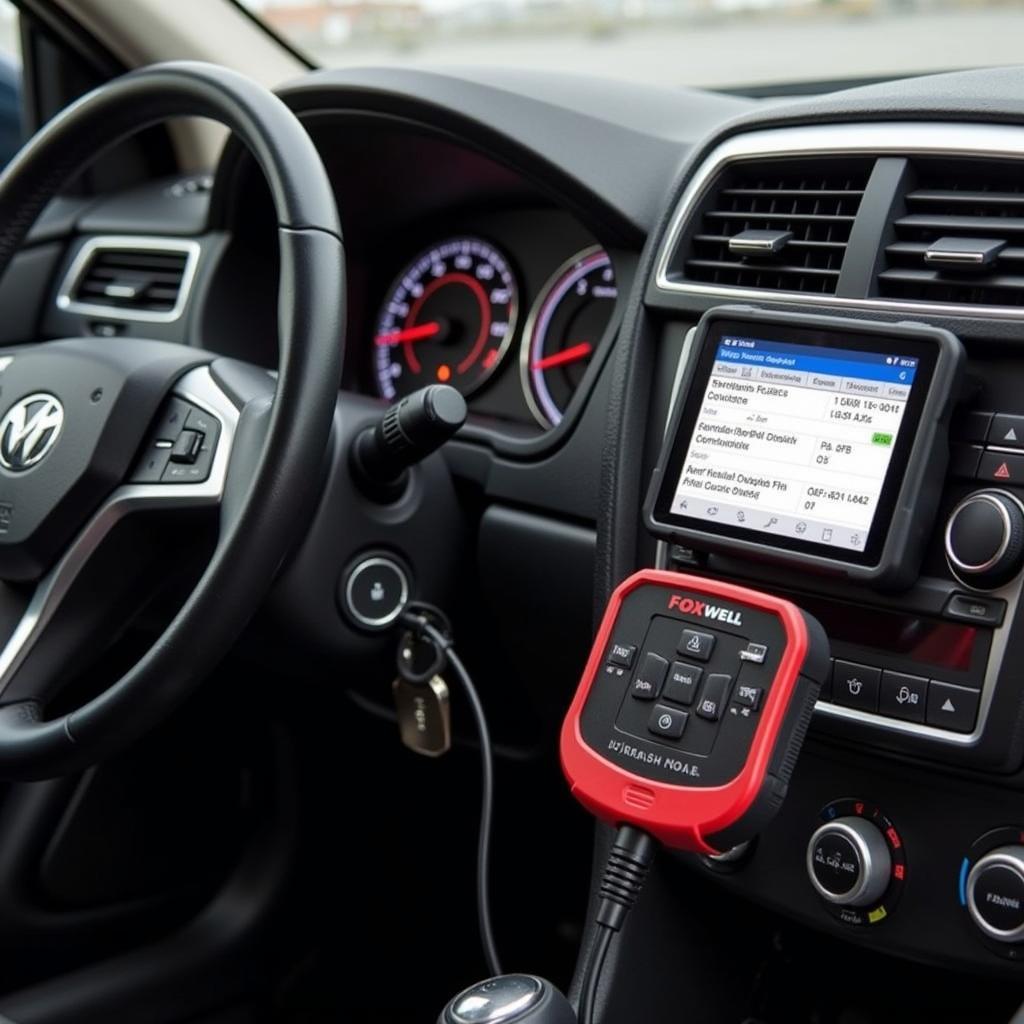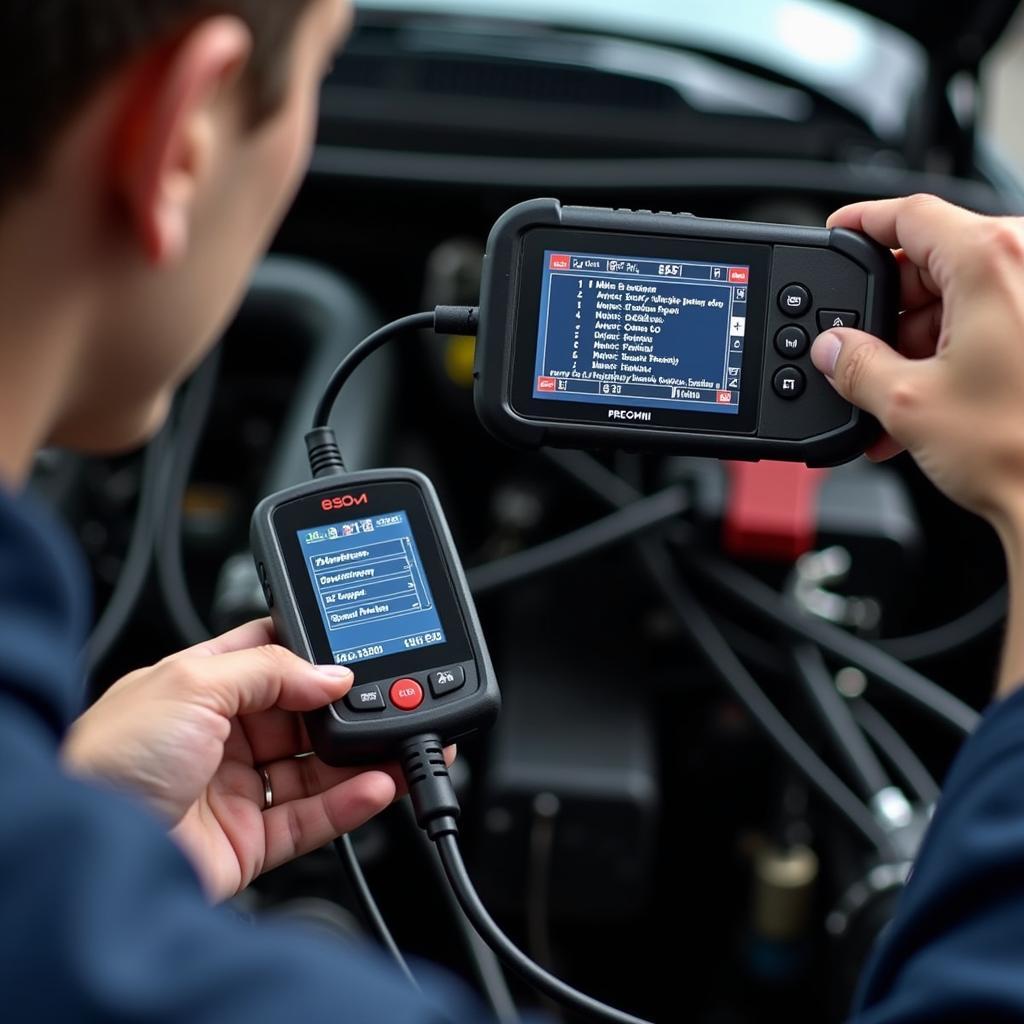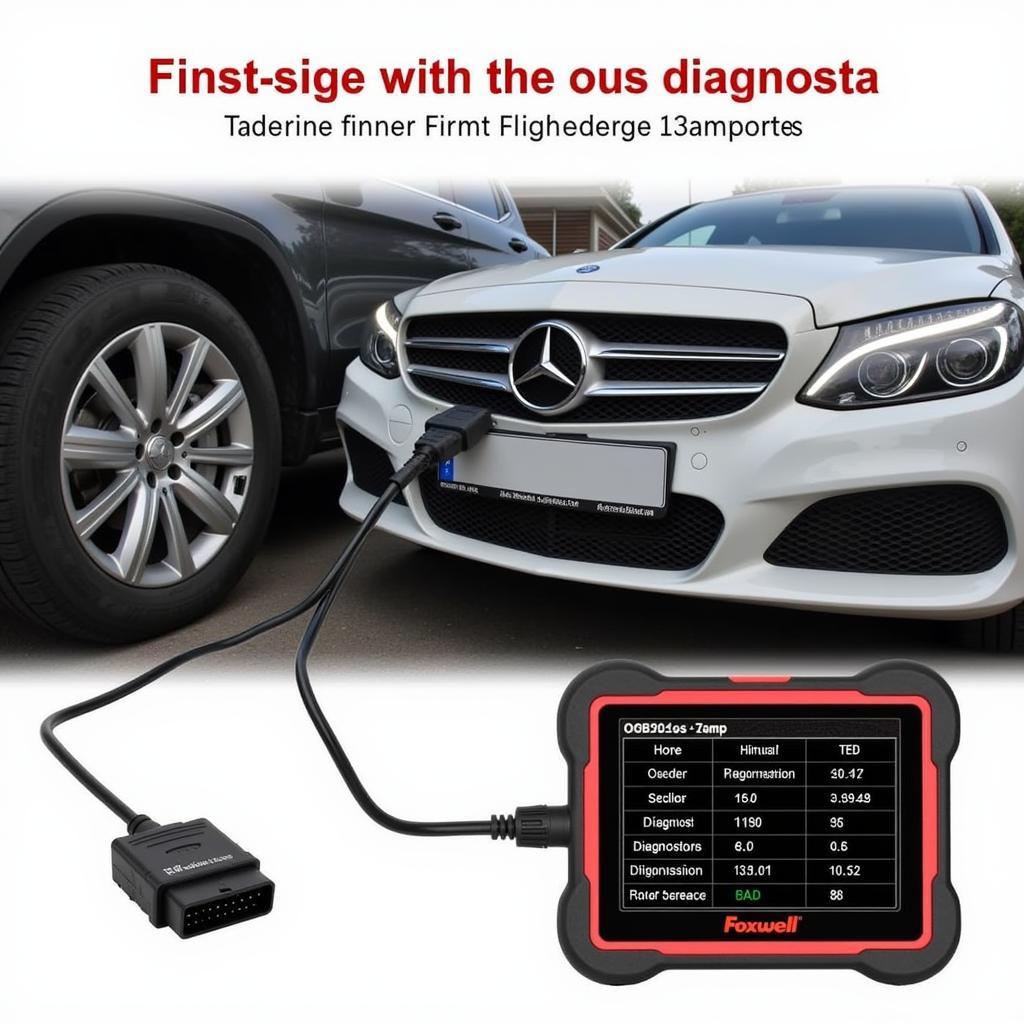Located in the heart of Hayes, VA, 4057 Foxwell Dr is more than just an address. It signifies a beacon for automotive electrical solutions, offering a comprehensive range of services to address the complex needs of modern vehicles. But beyond the brick and mortar lies a deeper understanding of the challenges faced by car owners, repair shops, and technicians alike. This article delves into the intricate world of automotive electrical systems, equipping you with the knowledge and resources to navigate common issues and achieve optimal vehicle performance.
Decoding the Complexity of Automotive Electrical Systems
Today’s vehicles are technological marvels, driven by an intricate network of sensors, actuators, and electronic control units (ECUs). This interconnected web, while enabling advanced features and enhanced performance, introduces a new layer of complexity to vehicle diagnostics and repair.
Common Automotive Electrical Problems
From a dimming headlight to a complete engine shutdown, electrical issues can manifest in numerous ways, often leaving car owners baffled and frustrated. Here are some prevalent culprits:
- Battery Problems: A dead or dying battery is often the primary suspect in electrical malfunctions.
- Alternator Issues: The alternator, responsible for recharging the battery, can fail and lead to a host of electrical problems.
- Wiring Harness Faults: Exposure to heat, vibration, and the elements can degrade wiring insulation, causing shorts and open circuits.
- Sensor Malfunctions: Modern vehicles rely heavily on sensors for various functions, and a faulty sensor can disrupt system operation.
The Importance of Accurate Diagnostics
Accurately pinpointing the root cause of electrical problems is paramount. A misdiagnosis can lead to unnecessary repairs, wasted time, and persistent issues.
Empowering Solutions for Automotive Electrical Challenges
Whether you’re a car owner seeking answers or a seasoned technician looking for advanced solutions, understanding the available resources is crucial.
The Role of Diagnostic Equipment
The advent of sophisticated diagnostic tools has revolutionized automotive electrical repair. These tools provide a window into the vehicle’s electrical system, enabling technicians to:
- Read and Interpret Fault Codes: Diagnostic scanners retrieve trouble codes stored in the vehicle’s ECU, providing valuable clues about the nature of the problem.
- Monitor Live Data Streams: Observing real-time sensor data allows for dynamic system analysis and pinpoints intermittent faults.
- Perform Actuator Tests: Activating components like fuel injectors or solenoids helps verify functionality and isolate issues.
Seeking Expert Assistance
While some electrical issues can be addressed with basic knowledge and tools, complex problems often necessitate the expertise of trained automotive electricians. These professionals possess:
- In-depth Electrical System Knowledge: Understanding the intricacies of vehicle wiring diagrams, circuit schematics, and electronic control modules.
- Experience with Diagnostic Equipment: Proficiency in using advanced diagnostic tools to accurately identify and troubleshoot faults.
- Specialized Repair Skills: Expertise in repairing or replacing electrical components, including wiring harnesses, sensors, and actuators.
“Accurate diagnosis is the cornerstone of effective automotive electrical repair. Utilizing the right tools and leveraging expert knowledge ensures timely and reliable solutions,” says John Miller, a veteran automotive electrician with over 20 years of experience.
4057 Foxwell Dr Hayes VA: Your Gateway to Automotive Electrical Excellence
Navigating the intricacies of automotive electrical systems can be daunting, but you don’t have to face these challenges alone. 4057 Foxwell Dr in Hayes, VA, is home to ScanToolUS, a leading provider of professional-grade automotive diagnostic equipment and expert technical support.
Our commitment to empowering car owners, repair shops, and technicians drives us to offer:
- High-Quality Diagnostic Tools: From entry-level OBD-II scanners to advanced professional-grade systems, we provide a wide range of tools to meet your specific needs.
- Unparalleled Technical Support: Our team of experienced technicians is readily available to answer your questions, guide you through troubleshooting procedures, and provide expert advice.
- Comprehensive Resources: Access to extensive knowledge bases, training materials, and online forums to enhance your understanding of automotive electrical systems.
Connect with ScanToolUS Today
For all your automotive electrical needs, turn to the experts at ScanToolUS. Contact us at +1 (641) 206-8880 or visit our office at 1615 S Laramie Ave, Cicero, IL 60804, USA. We’re here to help you keep your vehicles running smoothly and reliably.
Frequently Asked Questions
1. How often should I have my car battery checked?
It’s recommended to have your car battery tested at least once a year, especially before the winter months.
2. What are some signs of a failing alternator?
Dimming headlights, flickering interior lights, and a warning light on the dashboard are common indicators of a failing alternator.
3. Can I replace a car battery myself?
While it’s possible to replace a car battery yourself, it’s crucial to follow safety precautions and consult your vehicle’s owner’s manual for specific instructions.
4. What is an OBD-II scanner, and do I need one?
An OBD-II scanner is a diagnostic tool that retrieves trouble codes from your vehicle’s computer. While not essential for car owners, it can be a valuable tool for troubleshooting.
5. How can I prevent automotive electrical problems?
Regular vehicle maintenance, including battery inspections and cleaning battery terminals, can help prevent electrical issues.
6. What should I do if my car’s electrical system fails while driving?
If safe to do so, pull over to the side of the road, turn off the engine, and seek professional assistance.
7. How much do automotive electrical repairs typically cost?
The cost of repairs varies widely depending on the nature of the problem, the make and model of your vehicle, and labor rates in your area.



